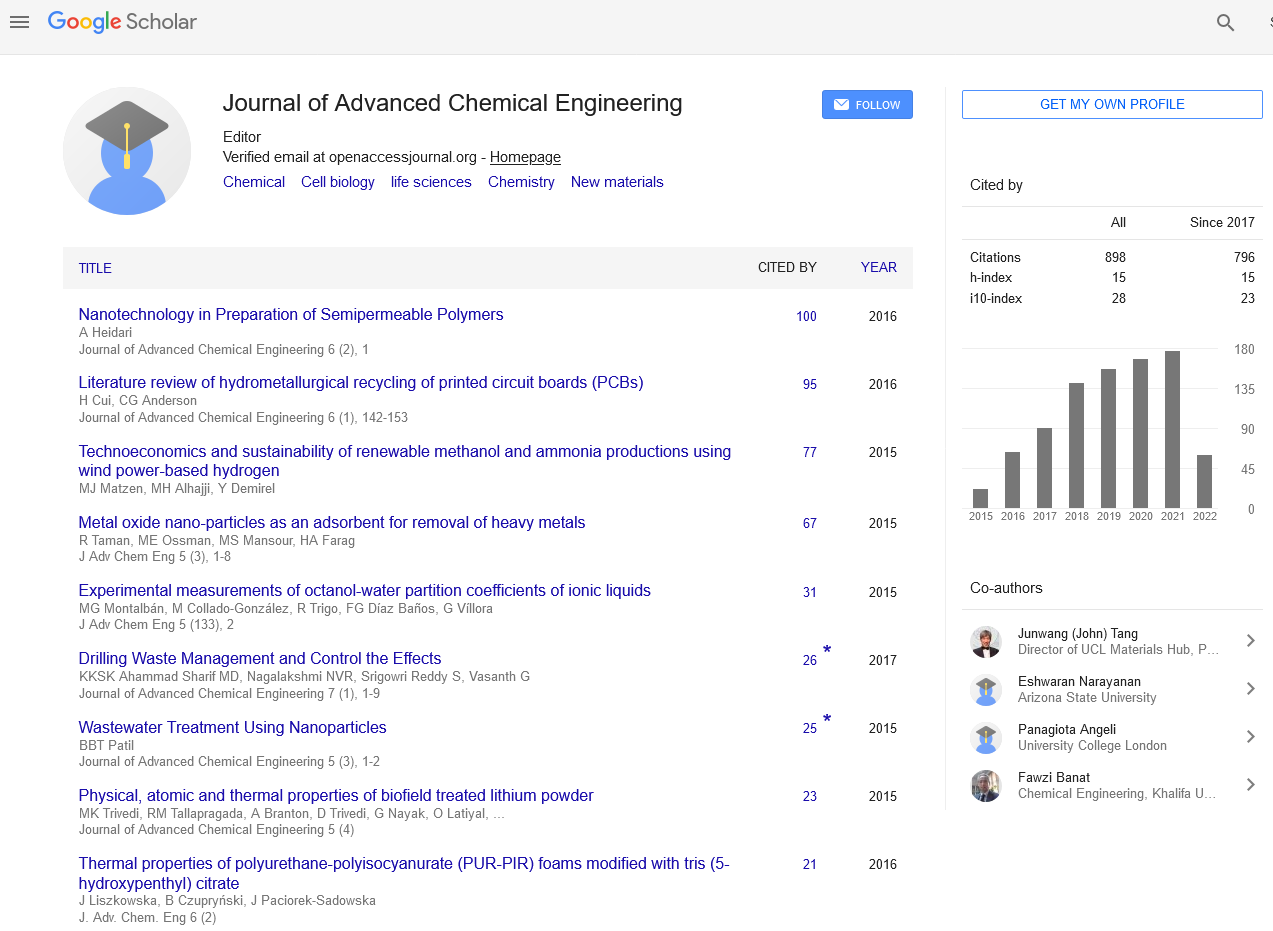Indexed In
- Open J Gate
- Genamics JournalSeek
- Smithers Rapra
- RefSeek
- Directory of Research Journal Indexing (DRJI)
- Hamdard University
- EBSCO A-Z
- OCLC- WorldCat
- Scholarsteer
- Publons
- Geneva Foundation for Medical Education and Research
- Google Scholar
Useful Links
Share This Page
Journal Flyer

Open Access Journals
- Agri and Aquaculture
- Biochemistry
- Bioinformatics & Systems Biology
- Business & Management
- Chemistry
- Clinical Sciences
- Engineering
- Food & Nutrition
- General Science
- Genetics & Molecular Biology
- Immunology & Microbiology
- Medical Sciences
- Neuroscience & Psychology
- Nursing & Health Care
- Pharmaceutical Sciences
Abstract
Effect of Carbon, Nitrogen Sources and Abiotic Stress on Phosphate Solubilization by Bacterial Strains Isolated from a Moroccan Rock Phosphate Deposit
Ilham Mardad, Aurelio Serrano and Abdelaziz Soukri
Experiments were conducted to evaluate the solubilization of tri-calcium phosphate (TCP) by phosphate-solubilizing bacterial isolates PSB 4, 5 and 6 identified as Enterobacter sp., Bacterium DR172, and Enterobacter hormaechei, respectively, in addition to Acinetobacter sp. used as a positive control strain. The study was carried out in culture media using different carbon and nitrogen sources, and under different abiotic stress conditions such as high salt, pH, and temperature. The effect of EDTA on growth was also tested. Organic acids produced by the PSB isolates were also determined by reverse phase HPLC. The isolates behave differently with different types of N- and C-sources and seem to adapt to different conditions, with glucose significantly promoting TCP solubilization in allcases. The highest production of orthophosphate (866 mg.L-1, pH 3.2) was showed by Enterobacter hormaechei using glucose as C-source, (NH4)2SO4 as N-source, at 37°C and pH 7, and without any addition of EDTA. The solubilizedphosphate also did attaint 110.71% in comparison with control when sorbitol was used as a C-source by BacteriumDR172. We also noticed a decrease in pH due to the organic acids secreted to the medium. Newly carboxylic acidswere identified to be produced by these strains in addition to others previously identified, 2 ketogluconic acid wasfound when galactose was used as a C-source for all isolates except for Acinetobacter sp. which secreted lactic,glutaric and glucuronic acids. Analysis of the Solubilization Index (SI) of the bacterial strains at different temperatures revealed different effectiveness to degrade and assimilate TCP, the SI being maximal at 25°C for the three isolates(4.17, 3.83 and 4.44, for PSB4, 5 and 6), whereas for Acinetobacter sp. the highest SI (3.83) was achieved at 30°C .


